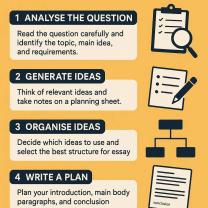How are colleges helping undocumented students?
Colleges and universities in the United States have been increasingly focused on providing support and resources for undocumented students in recent years. These students often face unique challenges due to their immigration status, and institutions have taken steps to assist them in pursuing higher education. Here are some ways in which colleges are helping undocumented students:
Institutional Support: Many colleges have established offices or centers dedicated to supporting undocumented students. These offices provide information, guidance, and resources to help students navigate the complexities of immigration status.
Financial Aid and Scholarships: Some colleges offer financial aid or scholarships specifically for undocumented students. Additionally, some states have passed legislation allowing undocumented students to qualify for in-state tuition rates.
Legal Support: Colleges often work with legal organizations to provide students with access to immigration attorneys who can help them with matters like DACA (Deferred Action for Childhood Arrivals) applications and renewals.
Mental Health and Counseling Services: Undocumented students may face significant stress and emotional challenges. Many institutions offer counseling and mental health services to help students cope with these issues.
Academic and Career Advising: Undocumented students can benefit from academic advising and career counseling services, which help them make informed decisions about their educational and career goals.
Supportive Campus Communities: Colleges may establish student organizations and support groups for undocumented students, creating a sense of community and a safe space for sharing experiences and challenges.
Awareness and Sensitivity Training: Some colleges provide training for faculty and staff to raise awareness about the issues facing undocumented students and promote a more inclusive campus environment.
Work Opportunities: Some institutions offer on-campus work opportunities that do not require proof of citizenship, making it easier for undocumented students to find part-time jobs to support themselves.
Advocacy and Lobbying: Colleges often engage in advocacy efforts at the state and federal levels to promote policies that benefit undocumented students, such as advocating for the continuation of DACA and more comprehensive immigration reform.
Emergency Funds: Some colleges have established emergency funds to assist undocumented students facing unexpected financial crises or hardships.
It's important to note that the support available to undocumented students may vary from one institution to another, and it can also depend on the specific legal and political landscape of the state or region where the college is located. As the situation regarding immigration policy can change over time, it's important for students to stay informed about available resources and policies that may affect them.
What is the cost associated with obtaining a nursing license in Illinois?
The cost associated with obtaining a nursing license in Illinois can vary depending on the type of license you are applying for, your education and experience, and whether you are applying for licensure by endorsement or examination. However, there are some general costs that all applicants will incur, such as the application fee, fingerprint processing fee, and background check fee.
According to the Illinois Department of Financial and Professional Regulation (IDFPR), the application fee for a nursing license is $50. The fingerprint processing fee is $63.75, and the background check fee is $40. In addition, applicants may also need to pay for official transcripts, letters of verification, and other documentation required by the IDFPR.
How to budget for the expenses related to acquiring a nursing license in the state of Illinois?
When budgeting for the expenses related to acquiring a nursing license in Illinois, it is important to consider all of the potential costs involved. In addition to the application fee, fingerprint processing fee, and background check fee, applicants may also need to pay for:
- Tuition and fees for nursing school
- Books and other educational materials
- Travel and lodging expenses for clinical rotations
- NCLEX-RN examination fee
- Nursing licensure fees
The total cost of obtaining a nursing license in Illinois can vary depending on the individual applicant's circumstances. However, it is important to be prepared for the financial commitment involved in pursuing a nursing career.
What are the fees and requirements for licensure as a nurse in Illinois?
The fees and requirements for licensure as a nurse in Illinois vary depending on the type of license you are applying for. However, all applicants must meet the following general requirements:
- Be at least 18 years old
- Have a high school diploma or equivalent
- Complete an approved nursing education program
- Pass the NCLEX-RN examination
In addition to the general requirements, there are also specific requirements for each type of nursing license. For example, applicants for licensure as a registered nurse (RN) must complete an approved associate's or bachelor's degree program in nursing. Applicants for licensure as a licensed practical nurse (LPN) must complete an approved diploma or certificate program in practical nursing.
For more information about the fees and requirements for licensure as a nurse in Illinois, please visit the IDFPR website.













